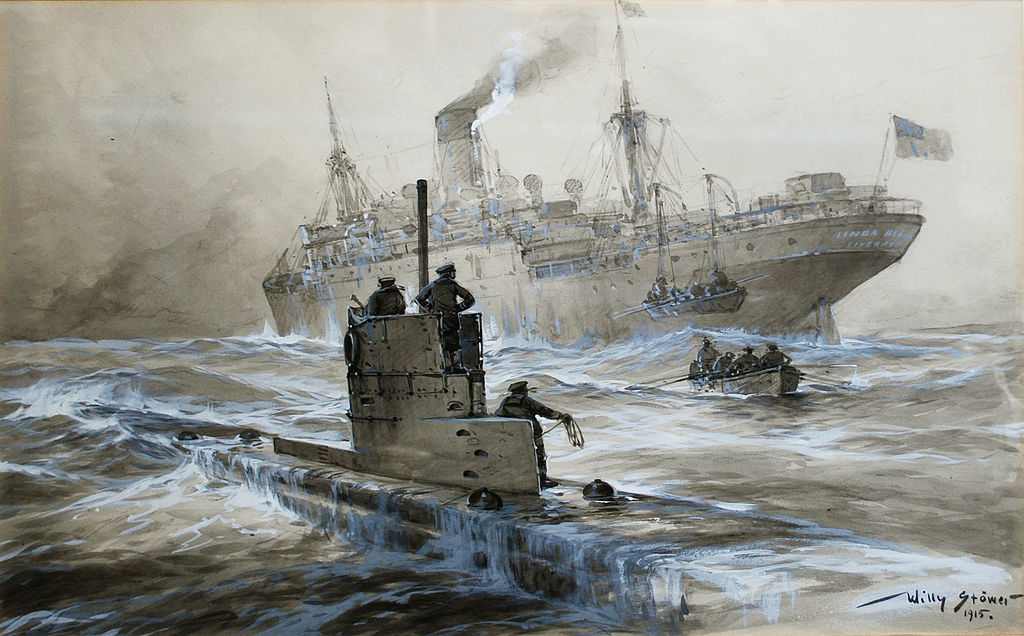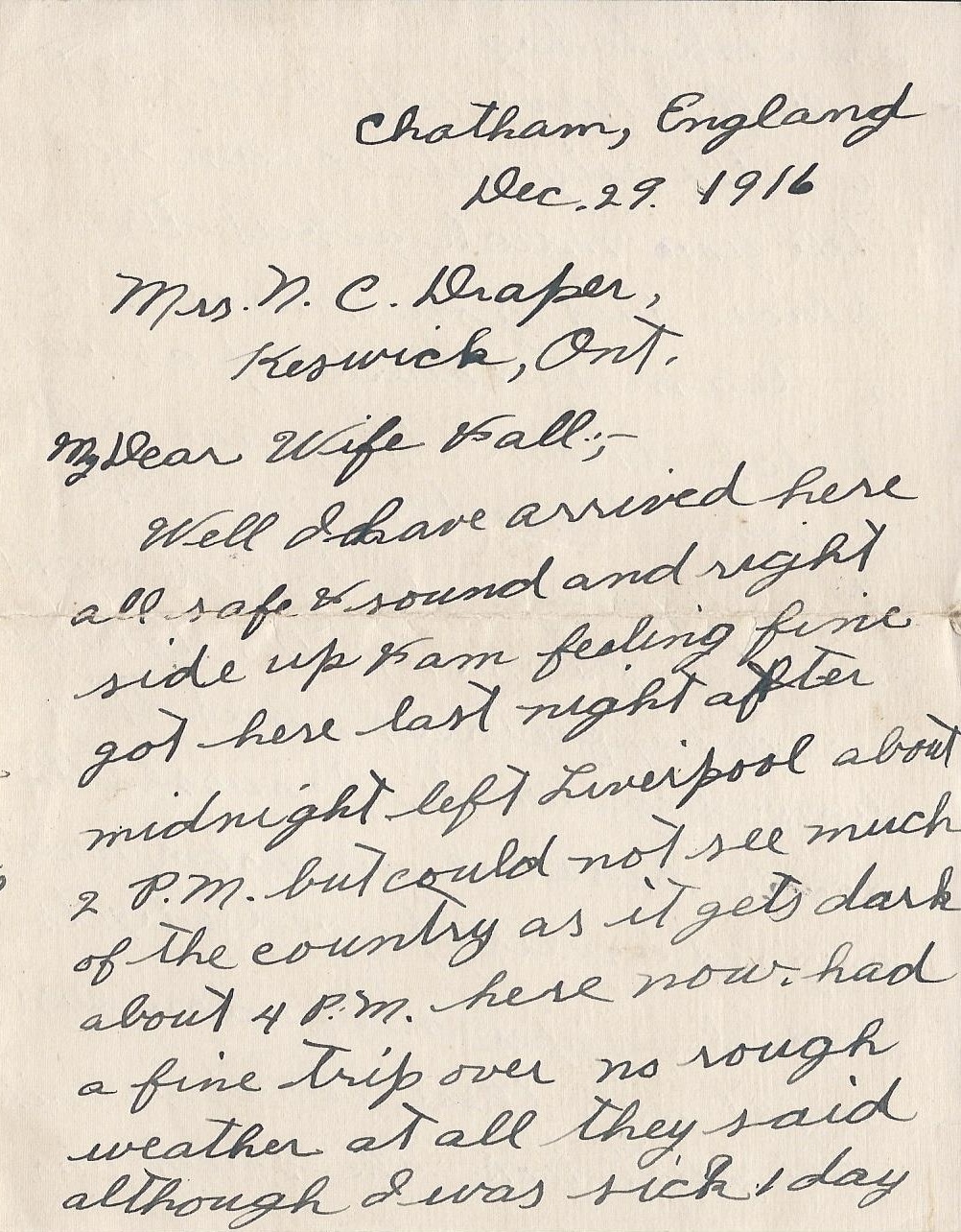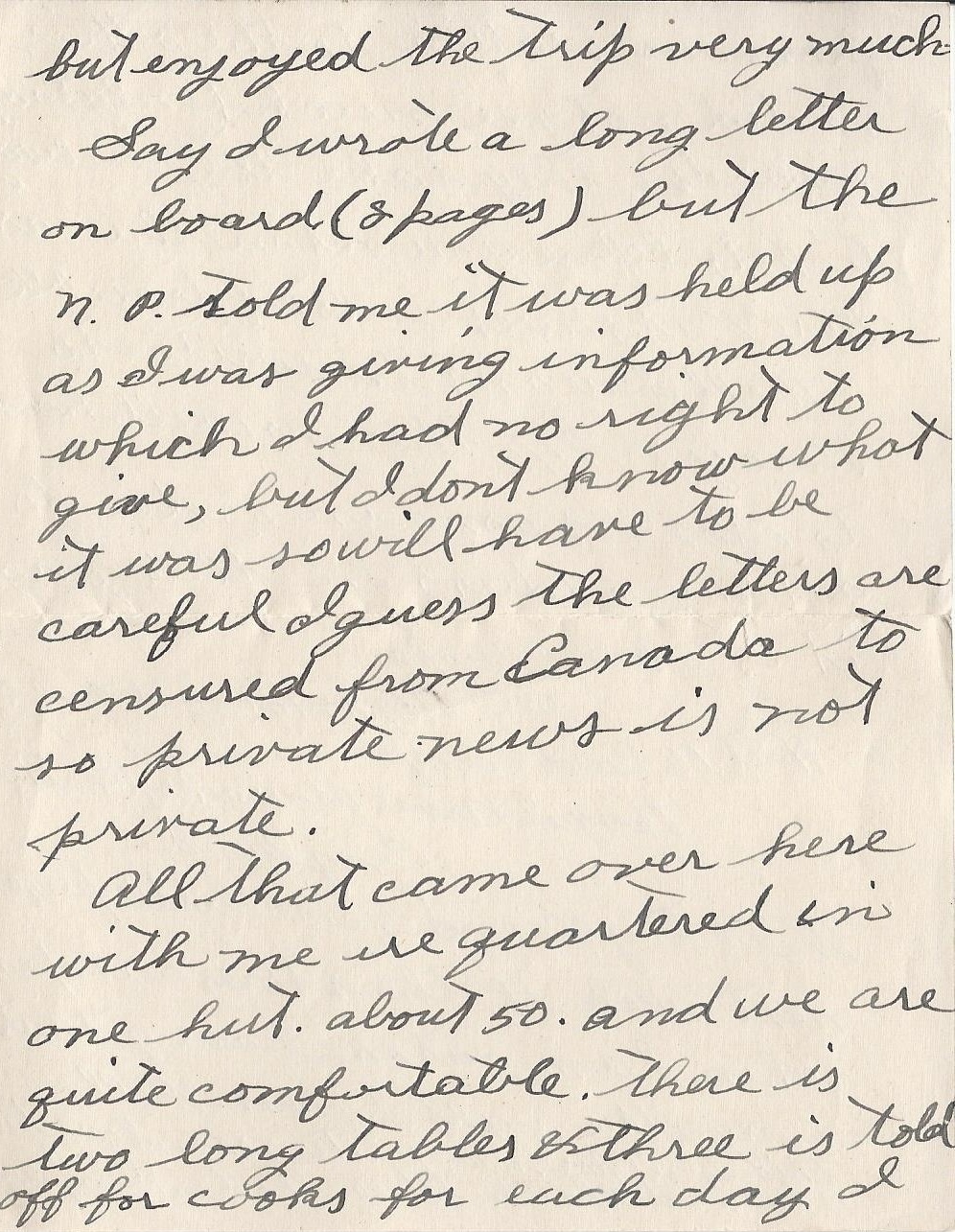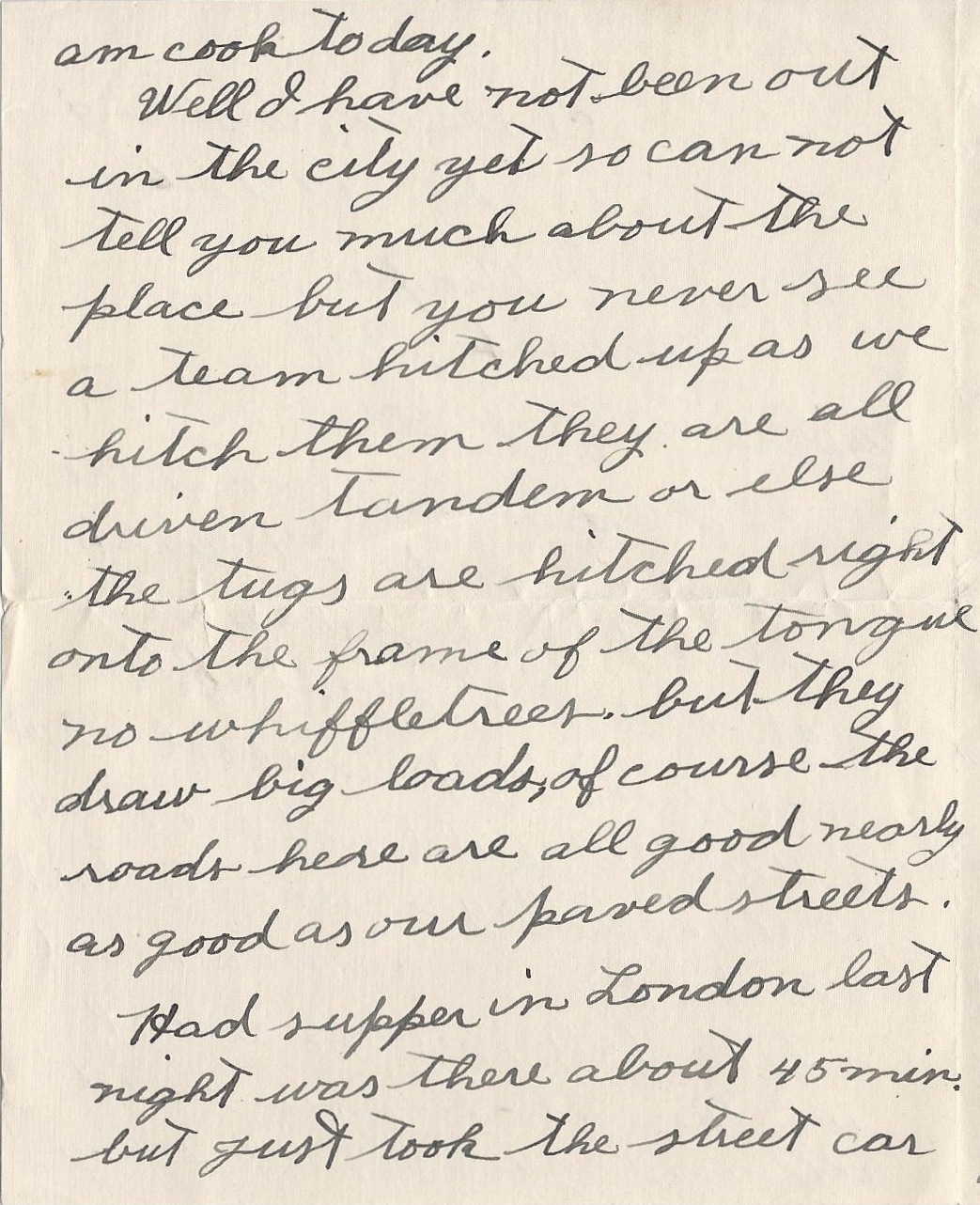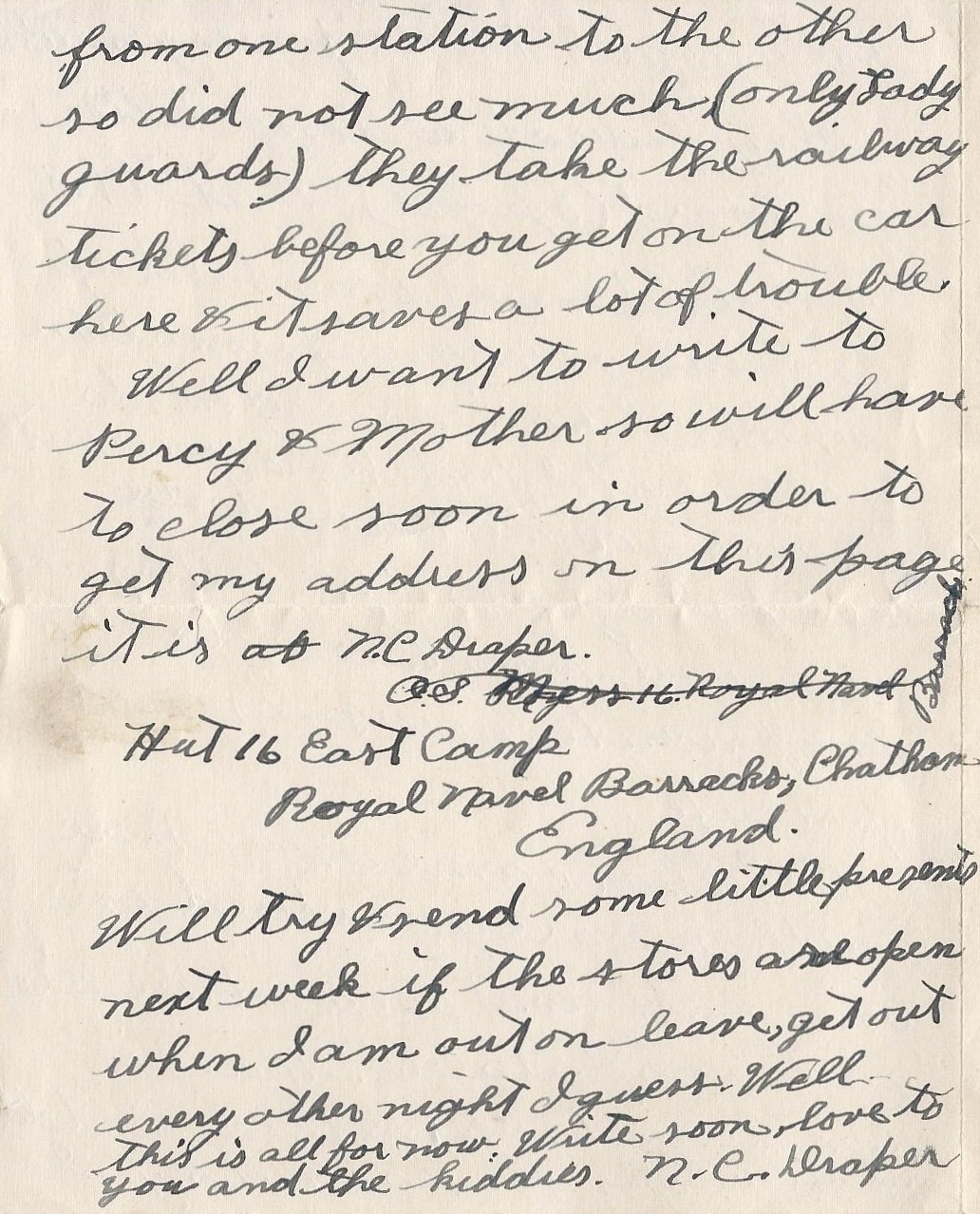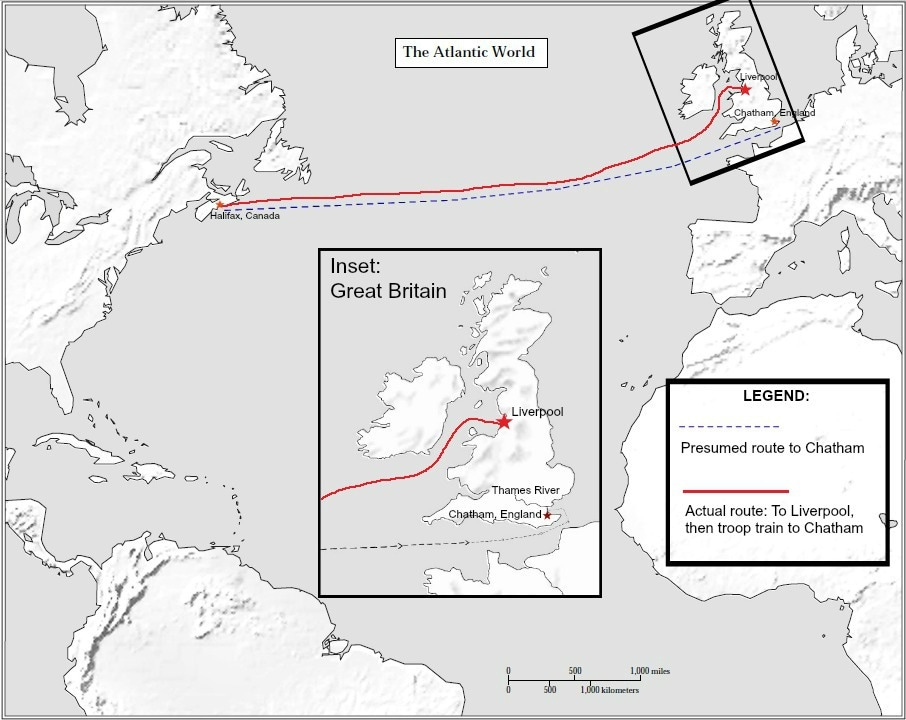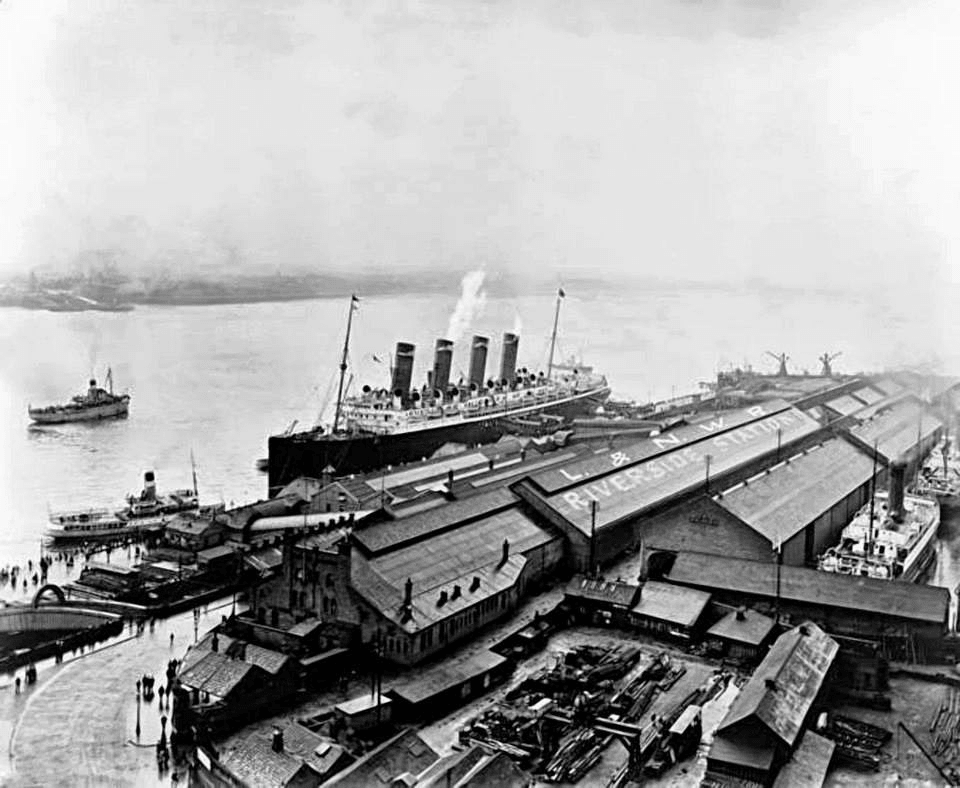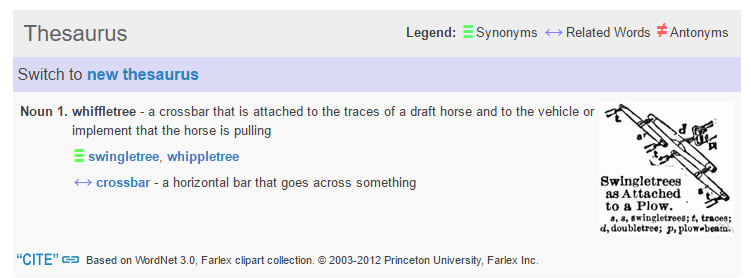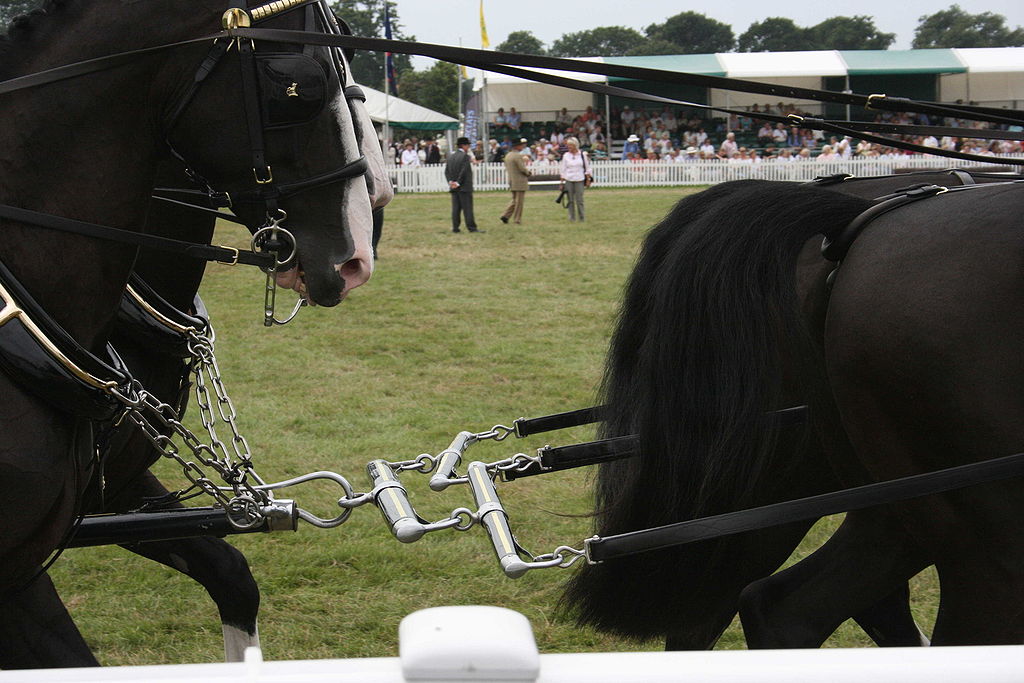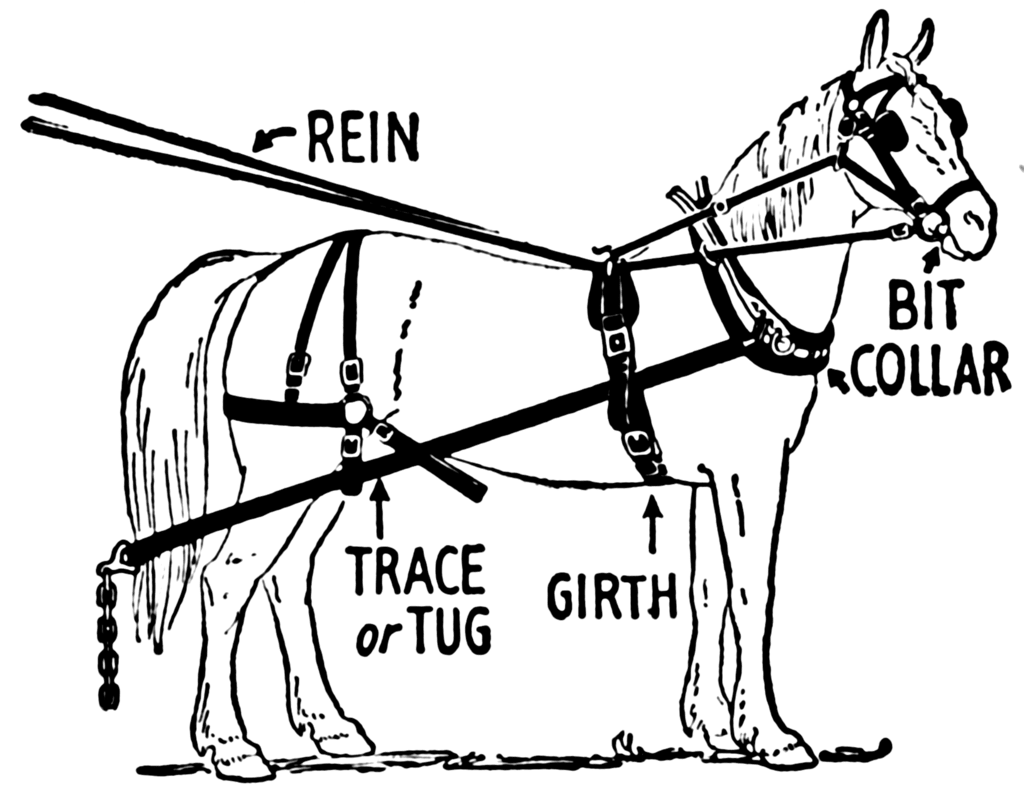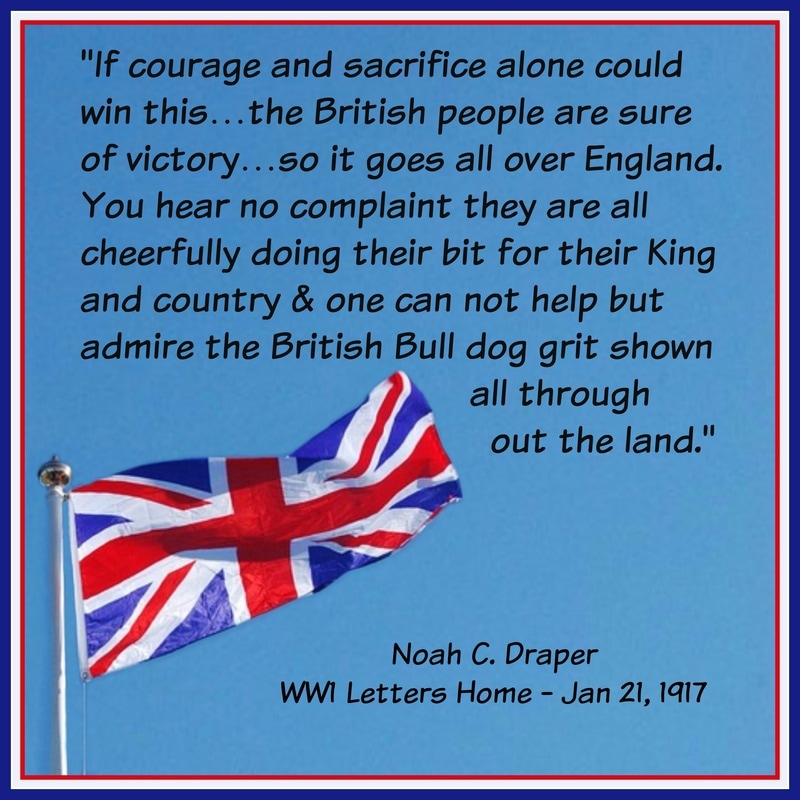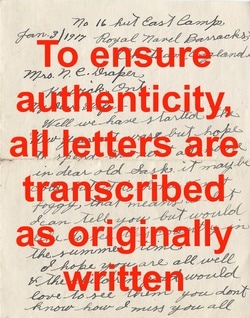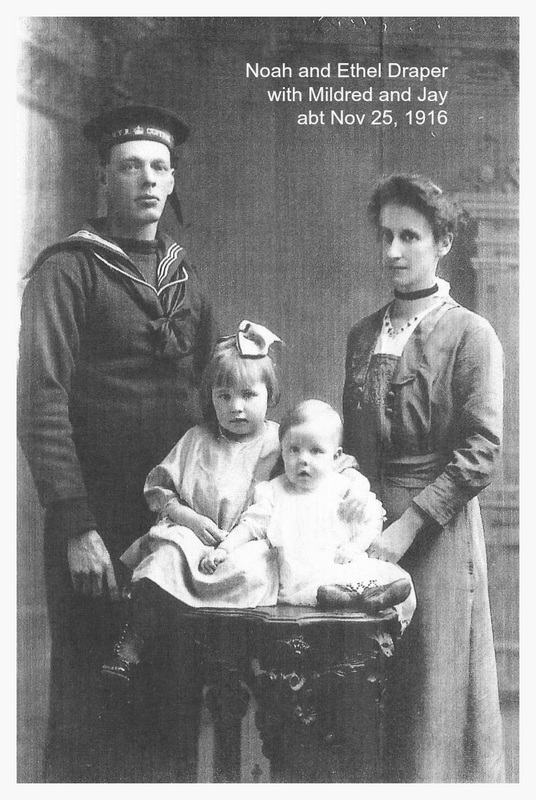Dated: Dec. 29, 1916
Mailed from: Chatham, England
Attached to: HMS Pembroke (21 Dec 1916 to 31 Dec 1916)
Profession: Farmer, Temporary Sailor
Rank: Ordinary Seaman
Addressed to: Mrs. N.C. Draper, Keswick, Ont.
Relationship: Wife
Writing instrument: Fountain Pen with Black Ink
Writing Paper: 10" x 6.5" medium weight, semi-rough, folded into booklet form. Noah hasn't numbered the pages, but he's using the same technique he used for most of his previously posted courtship letters to Ethel, where his first page is the outside, then he's opened it and written on the right side, then moved over to the left side and written there, and finally, he's closed it and written on the back. For clarity, I'm posting the pages in the order they were meant to be read.
People mentioned in this letter:
Ethel* - Noah's wife of 5 yrs, Ethel Isabel Nelson Draper
Percy* - Noah's older brother, lives near Adams, Saskatchewan
mother - Noah's mother, Sarah Sophia Deverell* Draper, widow of David Draper
The babies:
- Mildred* aka Midge, 3 yrs old
- James David* aka Jay, 6 months old (later called JD)
Places/things mentioned in this letter:
- Keswick - where Noah's family lives (the ones who didn't move west)
- Liverpool** - a huge busy port on the River Mersey (**see map below)
- London** - on the River Thames, the capital of England, and the U.K.
- Royal Naval Barracks Chatham - aka HMS Pembroke
- the N.P. - Naval Police (see Naval Police and Shore Patrol)
- whiffletree and tandem hitches (**see Historical Note #2 below)
- hut - barrack building
Word or Phrase Use:
car - short for street car
navel barracks - Noah's spelling should read naval barracks
Legend:
* Look under the Categories/Labels in the right side column for more posts on this
person/place/thing, or use the search box in the header at the top of this page
** see History Notes below
| Chatham, England Dec.29. 1916 |
| Mrs. N. C. Draper, Keswick, Ont. My Dear Wife & all; - Well I have arrived here all safe & sound and right side up & am fealing fine got here last night after midnight .left Liverpool about 2 P.M. but could not see much of the country as it gets dark about 4 P.M. here now. had a fine trip over no rough weather at all they said although I was sick 1 day |
| but enjoyed the trip very much. Say I wrote a long letter on board (3 pages) but the N. P. told me it was held up as I was giving information which I had no right to give, but I dont know what it was so will have to be careful I guess the letters are censured from Canada to so private news is not private. Al that came over here with me are quartered in one hut. about 50. and we are quite comfortable. there is two long tables & three is told off for cooks for each day I |
| am cook to day. Well I have not been out in the city yet so can not tell you much about the place but you never see a team hitched up as we hitch them they are all driven tandem or else the tugs are hitched right onto the frame of the tongue no whiffletrees. but they draw big loads, of course the roads here are all good nearly as good as our paved streets. Had supper in London last night was there about 45 min. but just took the street car |
| from one station to the other so did not see much (only Lady guards) they take the railway tickets before you get on the car here & it saves a lot of trouble. Well I want to write to Percy & Mother so will have have to close soon in order to get my address on this page it is N.C Draper. Hut 16 East Camp Royal Navel Barracks, Chatham, England. Will try & send some little presents next week if the stores are open when I am out on leave, get out every other night I guess. Well. this is all for now. Write soon, love to you and the kiddies. N.C. Draper |
History Notes
History Note 1 - Port of Liverpool
In this letter, Noah mentions that he disembarked at Liverpool and left there shortly after 2 pm, crossed the country, stopped in London for supper, and arrived in Chatham after midnight. Historical references mention Troop trains crossing England. I've also found reference to boat trains carrying troops. Boat trains are dedicated trains carrying passengers from a particular place to/from a port.
Germany wasn't fooling. In the seven-month period between March and September of 1916, 480 vessels were sunk by German U-boats in that area alone. In case you're wondering, a U-boat stands for undersea boat aka submarine. And that's where the image at the top of this post comes in... you never knew where the U-boats were hiding or if the ship you were traveling on would get fired on by torpedoes. We must never forget the brave captains, sailors, troops, and even passengers who risked everything by running the U-boat gauntlet, and to the ones who lost their lives along the way.
Whatever ship Noah sailed on to get to Liverpool, he would have had to go through U-boat territory, yet he doesn't give Ethel any inkling of the danger.
Upon disembarkation in Liverpool, it seems most troop ships used the Riverside Railway Station to send the troops on their way, and although I couldn't confirm this is the dock where Noah disembarked, considering that I don't know what ship he sailed on, the following shows the station as it appeared around 1914.
History Note 2 - Whiffletrees
In this letter, Noah mentions that the British don't use wiffletrees, so here's the definition of a whiffletree and it's other name variants.
To end this post, here's an image of two ponies being driven in tandem, much as you would see two riders on a tandem bicycle. I wonder if this is what Noah meant.
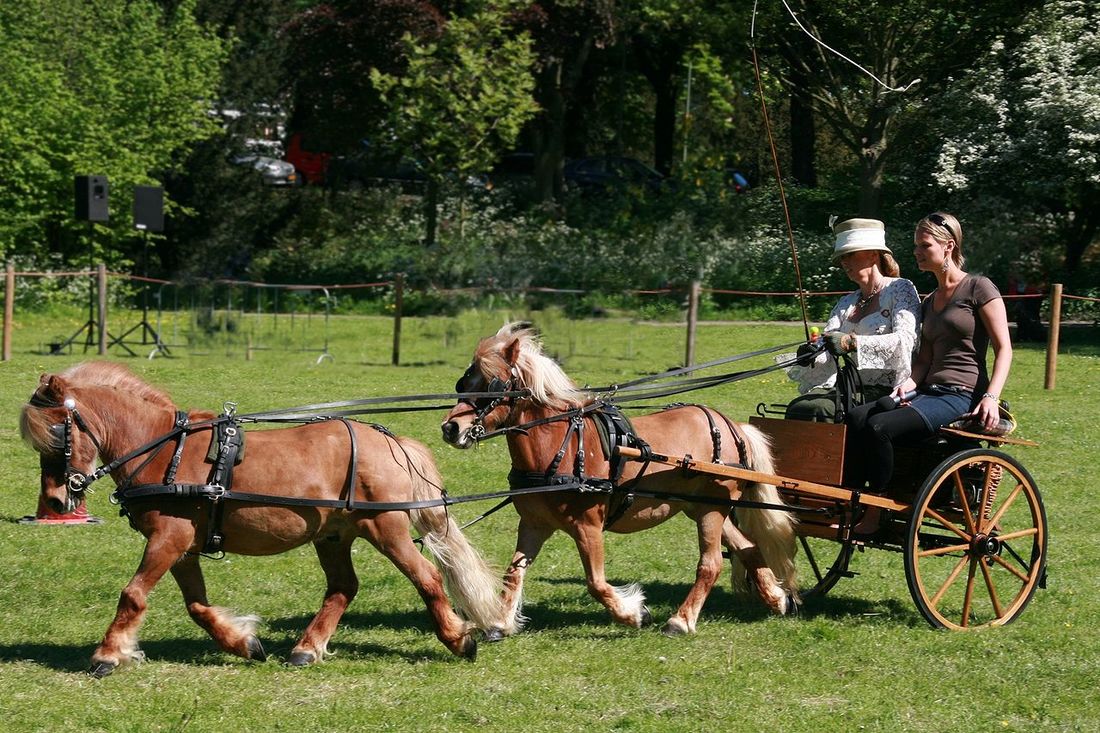 Ponies Driving in Tandem. Courtesy of Wikipedia
Ponies Driving in Tandem. Courtesy of Wikipedia

